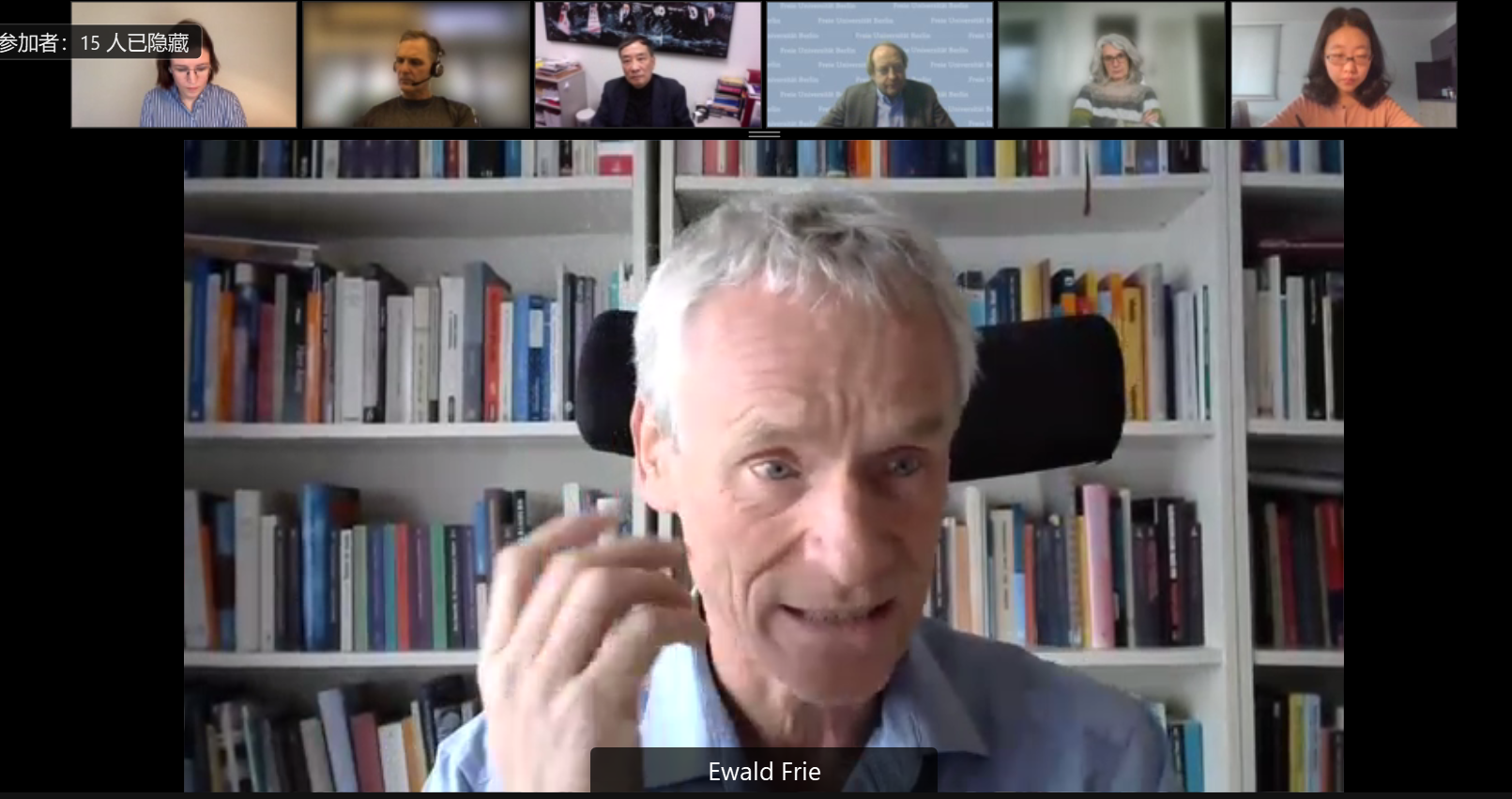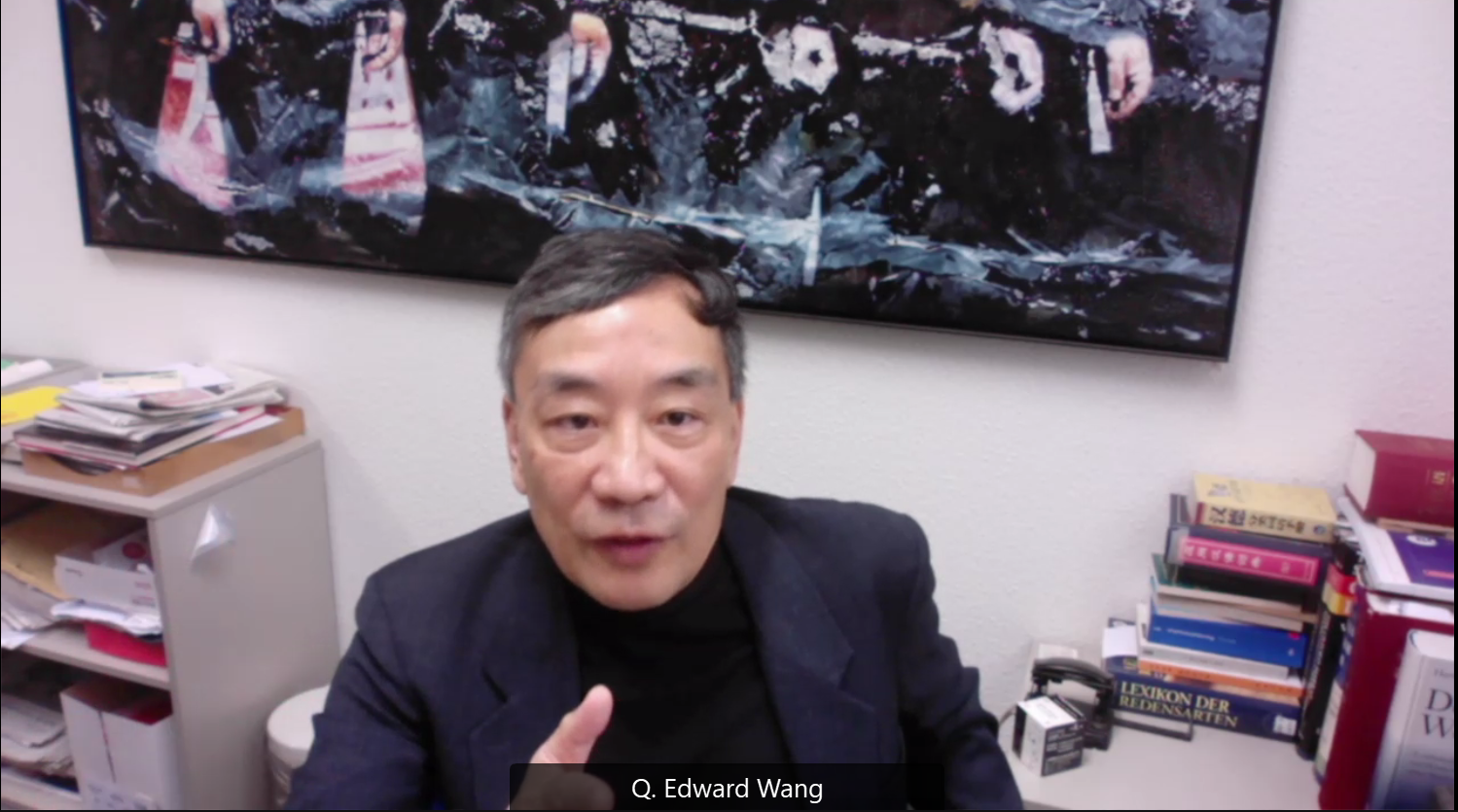The second session of the online academic series co-launched by Peking University (PKU), Freie Universität Berlin (FUB) and the University of Tübingen (UT) on area studies was held on November 12, 2021.
Prof. Ewald Frie, Director of Institute of Modern History, UT; and Wang Qingjia (Q. Edward Wang), a professor of the Department of History, PKU, delivered keynote presentations and commented and answered questions from the audience. The online session was moderated by Sabrina Habich-Sobiegalla, a professor from the Institute of Chinese Studies, FUB.

On the theme of “Area studies in German historiography,” Prof. Ewald Frie focused on the origin and tradition of German area studies during the 19th and 20th centuries and previewed the future of German area studies. He pointed out that the main approach of area studies in Germany developed from Landes geschichte (national history) and Volks geschichte (folk history) to Regional geschichte (regional history). The divide between area studies and the history departments used to be seen in the structures of a typical German history department. However, by showing four examples from the University of Tübingen history department, he showed that such traditions have all been changed now. Scholars have tried to broaden their scope. Research has become more interdisciplinary, from the local to the global. When global history started becoming more popular, scholars connected and compared different cases to find similarities in causal mechanisms, which served as a common ground for inter-area studies. In his view, area studies have become “Areas-in-Contact Studies”, or “Encountering-Area Studies”. Every place on the globe is global, and all places are interconnected.

Prof. Wang Qingjia gave a presentation titled “Why is global history a booming field among East Asian historians.” He expressed his view that the writing of world/global history reflects a change in the Chinese conception of the world, which has experienced three distinct periods over the past two centuries. “China vs. the world” showed the recognition by Chinese intellectuals that the outside world was markedly different; “China in the world” took a Eurocentric approach in modern times and indicated China should learn from the West; “China leads the world” refers to making China a new center in the world, which can radiate its influence across various regions.
After the keynote presentations, both speakers answered questions from the audience members, followed by the closing remarks made by Prof. Sabrina Habich-Sobiegalla.


